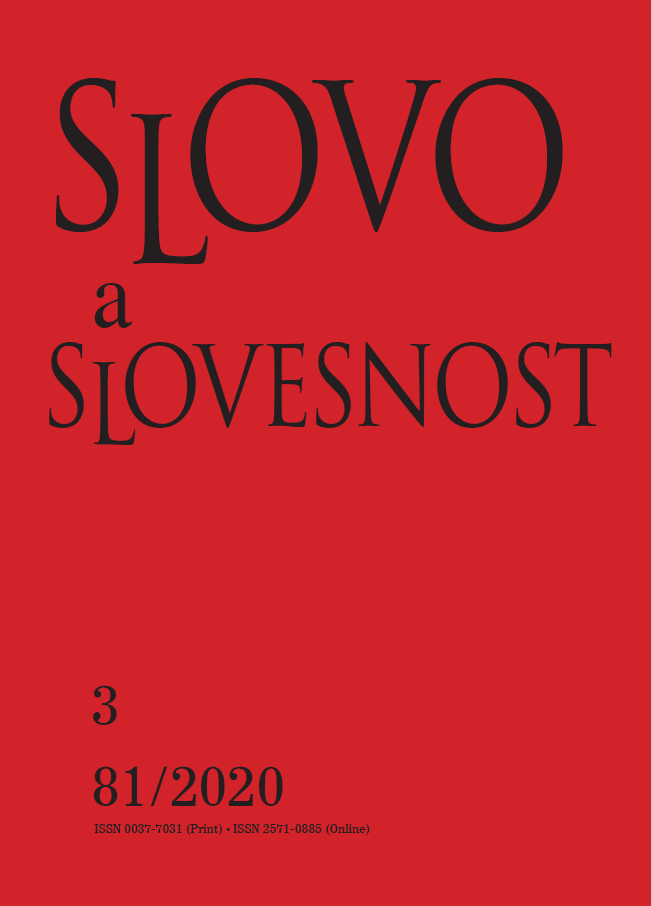Výslovnost dentálních frikativ v anglicismech a anglických vlastních jménech: kodifikace – norma – úzus
The pronunciation of dental fricatives in Anglicisms and English proper names in Czech: codification, norms and use
Author(s): Martin HavlíkSubject(s): Eastern Slavic Languages
Published by: AV ČR - Akademie věd České republiky - Ústav pro jazyk český
Keywords: Anglicisms; Czech; pronunciation; dental fricatives; norms; codification; language manuals
Summary/Abstract: This paper explores the pronunciation of the dental fricatives /θ ð/ in loanwords of English origin (i.e. Anglicisms) as well as in English proper names in Czech. I identify a considerable gap between the recommended and actual pronunciation of the dental fricatives: while alveolar fricatives (/s z/) are recommended in language manuals and textbooks, in actual language use Czech speakers pronounce the dental fricatives predominantly as alveolar stops (/t d/). My hypothesis for this imbalance between recommended and actual pronunciation is that, to date, authors of language manuals and textbooks have failed to take into account both the pronunciation norm of Czech speakers and the original English pronunciation. I make a number of arguments for the replacement of the English phonemes /θ ð/ with the Czech phonemes /t d/ or /f v/, which I consider more suitable than their replacement with the “recommended” /s z/. However, given the lack of reliable guidelines for the pronunciation of the dental fricatives, I observe both significant variability in pronunciation, particularly in the case of recent loanwords such as smoothie and think tank, and a high level of uncertainty among speakers with respect to how Anglicisms containing dental fricatives should be pronounced.
Journal: Slovo a slovesnost
- Issue Year: 81/2020
- Issue No: 3
- Page Range: 195-217
- Page Count: 23
- Language: Czech

